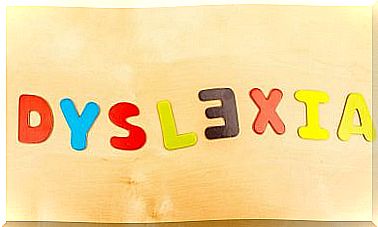Childish Love And Mature Love: From Need To Recognition

Childish love and mature love. All of us, in some way, have made (or should do) that journey of affective maturation that goes from one dimension to another. It is a necessary transition that emerges as a result of learning, self-awareness and responsibility. However, such psychological craftsmanship is not at all easy and there are many who stick to the realm of need and the trap of attachment.
Erich Fromm was the first to tell us about these relational categories. In his now famous work The Art of Loving he taught us, among other things, that nothing can be as harmful as loving without knowing how to love or understanding the bases of this exceptional craft. Hence, many walk the world drawing ties that wound, opening wounds and causing grief that take time to heal.
Those who clearly define themselves by a childlike love still do not understand the origin of their failures. Because building a healthy, mature and conscious bond requires courageous personal responsibility. But those who understand love as a necessity and as a strategy to fill the gaps project guilt onto the other because ” nobody knows how to love them as they deserve .”
We analyze it.

Childish love and mature love, how are they different?
Despite the fact that love is a feeling that we can all experience, in reality, it is not a suitable dimension for everyone. Why do we say this? Because we are facing one of the most powerful and beautiful realities that we can experience, but misusing it destroys and annihilates it. Also because outdated and wrong ideas continue to be diluted in this reality, such as continuing to give validity to romantic love in the 21st century.
Moreover, many accumulate failed relationships because they still do not understand that to love you have to love yourself first. Also because it requires a great deal of humility, courage and know-how. However, the brain takes us almost instantly towards that neurochemical drift where we are dominated by attraction, passion and the longing desire to be with the other.
Hence, there is not always time to become aware of the rules of good love. The one that doesn’t hurt, the one where no one ends up being victims or an emotional sniper. Let’s know the differences between child love and mature love.
Childhood love: affection born of need
The main problem that people characterized by childish love have is that they never manage to be loved as they wish. They live feeling dissatisfied and disappointed. Theirs is a story of continuous failures in which you will be disappointed because no one can recognize or understand you, let alone fill your gaps and shortcomings.
- Almost always there is the same mantra in his mind: “nobody loves me as I hope they love me.” However, at no point do they stop to think that maybe “I don’t even love myself the way I should.”
- Childish love and mature love differ in a key aspect: the first part of the need. They need to be loved and validated by the couple to have a presence in the world. Your self-esteem and your self-concept are nourished by that external reinforcement and if this is missing, everything is missing.
- The person with this profile adores the other person in an oversized way and will do everything for the other. In this way of loving there are no limits or norms, it is giving everything in exchange for nothing, it is a desperate want that does not let the other person be, because he wants it and expects everything from him.
- That affective blindness leads them to live for and for the other person. They are like possessive children who can explode into a fit of jealousy, who have tantrums because they are overwhelmed by fear of not being loved, of being betrayed at some point.
- On the other hand, it is important to note that child love is the white label of romantic love. Both are looking for that better half who, like a fairy tale character, comes as salvation to all problems to become a soul mate. A bias that brings serious failures, mistakes and grief …
Mature love: the desire that starts from self-realization
Between child love and mature love there is a personal journey. It is a transit through which we all must go to acquire new skills in this matter. It is going from lack to fullness. From the feeling of lack to satisfaction. Because whoever loves in a mature way does not need to find a love to feel full; one already feels accomplished.
Nor does he seek and yearn for anything because everything that childhood love expects, the mature person already has and offers to himself: recognition, security, self-esteem … Thus, when establishing an affective relationship, he does it out of desire and never for necessity. Because his objective in the adventure of love is to find someone with whom to share a trip, being two free and fulfilled people who choose each other to build the same project in happiness, in complicity …

Childish love and mature love, how do you go from one to the other?
Nobody goes from one to the other automatically and just to have a birthday. Emotional maturity does not come with age, nor with the damage suffered. Moreover, there are those who go from disappointment to disappointment without realizing that their filter in love starts from immaturity, from childish love.
So how can we develop the foundations of a mature, conscious, and fulfilling love? These would be some keys to reflect on.
- Work in you the qualities that you expect from the ideal partner. If you want someone loving, be loving with yourself. If you are looking for someone who is fun, smart, caring and confident, become that person yourself. Stop needing and transform yourself into what you long for others to offer you.
- Be the person you would like to have by your side.
- Strengthen your self-esteem. As Erich Fromm said, infantile love says to itself that of “I love because they love me.” However, mature love understands the following: “They love me because I know how to love, they love me because I love myself.”
That is the key, self-love, self-esteem, stopping being afraid of being alone make up those pillars on which healthy relationships are sustained. The affective bonds that last and that make love a journey of growth and discovery put aside needs, fears and emptiness to create a refuge where pain never has a place …









